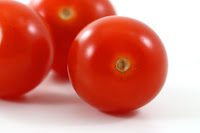 |
| Photo courtesy of Petr Kratochvil |
Confused in the meat department in your local grocery store? I sure am. Between claims of "all natural," "hormone free," "organic," etc., it is hard to know what to fork over more money for and what is simply an empty claim. So here are a few tips to help you sort through it all:
Let's start with chicken. Did you know that growth hormones are not allowed in any poultry? So higher ticketed chicken boasting a "hormone free" label aren't worth the extra cash. It's all hormone free! At least, by law, it is supposed to be. But if you buy food that is not being regulated, who knows?
So what about the difference between organic and free-range? Well, here there is a difference. Free-range chicken are covered under absolutely no standards or regulations. What does this mean? While free-range chickens might cluck a bit happier tunes than their penned cousins, they also may be full of antibiotics and non-organic pesticide-ridden feed. Bottom line: organic is the safer choice for you and your family.
If you are not only concerned about the safety of the food, but are also thinking about the welfare of the animals, look for the "Certified Humane Raised & Handled" label. Poultry, meat, eggs and dairy products bearing this label have had access to plenty of clean food and water, have been protected from harsh weather, lived in a safe place with plenty of room to move around in. These standards were put in place by the ASPCA and the Humane Society of the U.S. Of course, if you are a vegetarian or vegan, you are probably ready to jump on me for promoting the eating of these farmyard pets altogether, but I am just relaying some info, so save your breath...it is not my intention to offend anyone, just to educate those who choose to eat meat (of which I am one of them).
This last bit reminds me of the movie My Big Fat Greek Wedding, which contains one of my favorite lines from a film. Remember when the main character brings her boyfriend home to meet the family and her aunt finds out he is a vegetarian? She loudly states, "You don't eat no meat? You don't eat no meat? ... Well, that's okay. I'll make lamb." Love it!!
Wow. I don't know what that had to do with anything, so let me get back on track. As far as being a more environmentally-conscious person goes -- the less meat you eat, the better. If you simply cut your consumption of meat in half, the amount of greenhouse gases you could save yearly equals 1.4 tons! So it is a greener choice.
But let's continue looking at meat and what's worth paying more for. I was at Right by Nature on Friday night and had a tasting of their grass-fed beef. Oh my...let me tell you -- there is a difference. It may be costly, but oh, is it worth it! If you only enjoy steak occasionally, you might want to spring for grass-fed beef. However, like free-range poultry, there are no standards by which a beef farmer has to adhere to when claims of "grass-fed" are made. Basically, though, it simply means the animals dined in the pasture instead of in a stall with a trough full of processed feed.
If not grass-fed, then at least pick up some organic beef, especially if you are feeding it to your little ones. The U.S Department of Agriculture has standards that organic livestock ranchers must abide by. Here's the list:
- Antibiotic- and hormone-free
- Humane treatment
- Natural preventive health practices to prevent diseases
- Natural processing methods -- this is a good one to pay attention to. It means that while processing the meat, there are no artificial preservatives, harmful additives or synthetic chemicals. None.
- Organic feed -- 100% certified organic feed or toxic-free grass with no pesticides or fertilizers that are harmful to the earth.
- Zero animal by-products -- mad cow disease was the result of the cows being fed parts of other animals. This is not permitted in meat that is certified organic.
Want to find out where to buy organic meat and dairy products that are free of hormones and antibiotics? Check out LocalHarvest.org.
Keeping it green and healthy,
Hana














